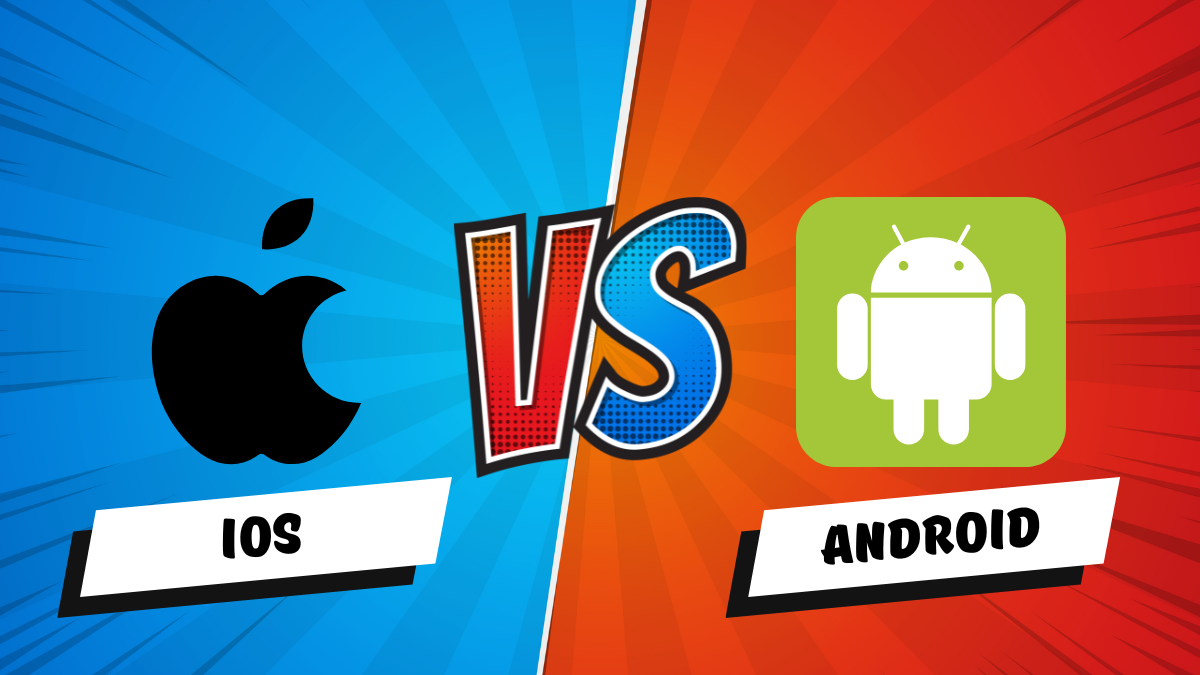The Android vs iOS debate, the two most popular mobile operating systems, has been going on for over a decade. Ultimately, it is a matter of personal taste and priorities because the two platforms have strengths and weaknesses. Read on as we explore aspects of both systems, such as customization, user interface design, app availability, hardware support, security, and pricing, to help you determine which platform is best for you.
Customization
Android vs iOS: Customization Apple vs. Google One of the reasons Android is so loved by users is its flexibility. Widgets and themes, as well as custom launchers, mean that Android users can tailor their interface around their preferences. This again gives developers more wiggle room to build innovative apps with new features, contributing to the platform’s versatility.
On iOS, the experience is much more consistent and streamlined. Recent updates have left room for customization compared to its competitors, with the addition of widgets and app libraries. Apple values consistency and simplicity, which resonates with users who like a clean, unified design.
User Experience
One of the most recognized features of Apple devices is iOS, which is known to be very user-friendly and accessible. Apple’s devices, including the iPhone, iPad, and MacBook, all work seamlessly together, creating an ecosystem that makes life easier and more productive. Workflow features such as AirDrop, Handoff, and iCloud syncing enable a seamless experience for users who juggle multiple Apple devices.
Android is somewhat different from manufacturer to manufacturer. Whereas Google’s Pixel offerings are purebred Android devices with neither overlays nor optimizations, other brands—like Samsung, OnePlus, or Xiaomi—bring their own skins, features, and additions. While this offers increased choice and availability, it also introduces a level of inconsistency in user experience.
App Availability and Quality
Android and iOS have impressive app stores, but the differences between their ecosystems are significant. The Apple App Store has a reputation for strict quality control, which means that apps are held to a higher standard of performance and security. This leads to iOS users regularly enjoying a more refined experience with their apps.
Android’s Play Store has diverse apps, including free and open-source alternatives. Although Play Store has less stringent quality control, it brings more diversity and innovation. This change made Android the ideal platform for developers exploring new concepts.
Hardware Options
Android’s primary strength is the vast array of hardware available. Whether you are looking for an entry-level device or a flagship phone, there is an Android for everyone. Advanced technology offered in high-end mobile brands includes advancements in camera and display, with foldable screens and high-refresh-rate displays being the norm in brands like Samsung, Google, or OnePlus.
iOS, on the other hand, is limited to Apple devices like the iPhone. This does limit hardware selection, but it guarantees that the software and hardware are highly integrated for superb performance and reliability. Apple devices are known for premium build quality, longevity, and resale value.
Security and Privacy
In general, Apple emphasizes security and privacy and likes to portray itself as the good shepherd of user data. Things like end-to-end encryption, app tracking transparency, and frequent software updates make iOS an excellent option for users concerned with privacy.
You Mentioned Android Device SecurityOK; I think most of us will agree. The Android OS has come a long way in terms of security—thanks in no small part to recent features like Google Play Protect and regular security updates. The open nature of the platform and the diversity of devices also expose it to a broader array of vulnerabilities. Users should be cautious when downloading degrees and updating their software.
Pricing and Affordability
Android is the king of value, where the pricing is as diverse as the devices we use. From budget to high-end flagship, there’s an Android device out there for almost everyone. This inclusivity helped Android gain worldwide traction.
By contrast, Apple pitches its iOS devices as premium goods with a higher price tag. For some, the price is a turnoff, but the majority of users feel that the quality, performance, and ecosystem are worth the investment.
Ecosystem Integration
For users in Apple’s ecosystem, rich interoperability provides a compelling incentive to opt for iOS. The integration of all of these systems—like iMessage, FaceTime, and Continuity—creates a cohesive experience that promotes workflow and ease of use.
Android’s ecosystem is more fragmented, with various manufacturers having different levels of integration. Still, Google has made strides in its ecosystem with Google Assistant, Chromecast, and smart home integration.
Verdict
In the end, it’s a matter of personal preferences and priorities. Android is probably the pick if you care more about the choice of software, pricing, and available hardware. Alternatively, if you value a smooth user experience, security, and integration into an ecosystem, then iOS might be the best platform for you.
Both platforms have their advantages and disadvantages, and neither is better or worse than the other. To determine the one that makes the most sense for you, consider what you will need and want to have, and find the platform that aligns with your needs and expectations. No matter whether you are team Android or team iOS, both systems keep raising the bar on innovation so users get access to the latest and greatest technology and features.


